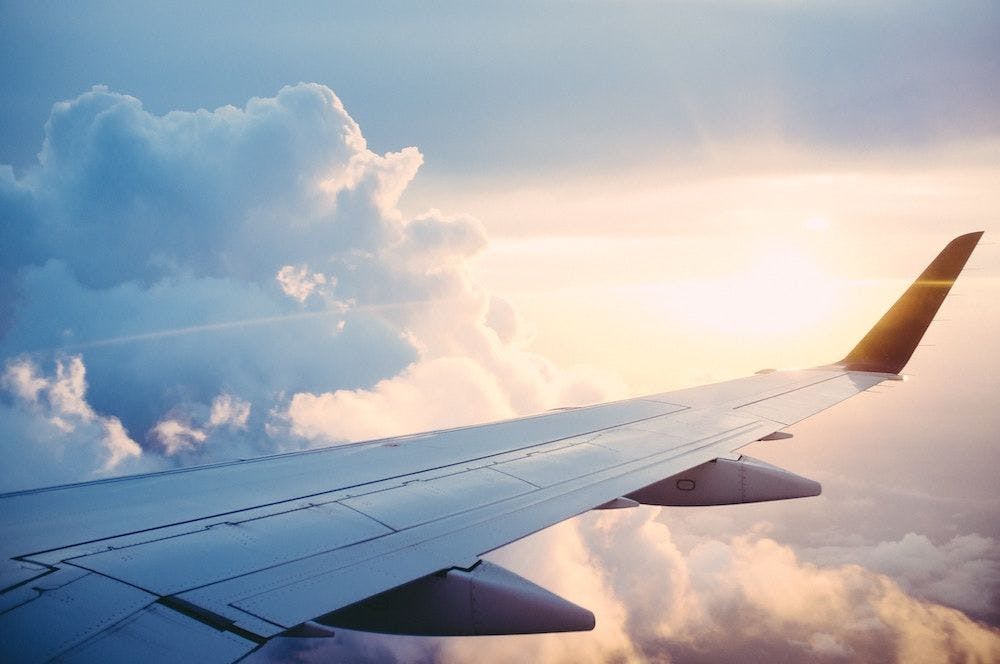
Is a terror of taking to the skies holding you back from travelling? You’re certainly not alone, but help is available. Here we explore how to overcome this common phobia, and the role hypnotherapy can play in it...
Aerophobia, or fear of flying, is thought to affect around one in 10 of us. So, if you’re on a full flight jetting off for some summer sun, the chances are you’re not the only one on board feeling anxious.
According to Anxiety UK, those with a fear of flying tend to fall into one of two camps; the people who struggle with the internal loss of control, and those whose fear is linked to external factors, such as turbulence, bad weather, or a potential fault with the aeroplane.
While flying isn’t something we typically encounter every day, this phobia still has a big impact on those affected. For some, it might hold them back from exploring the world. It might mean you say ‘no’ to going on holidays with your loved ones. It can even affect work – forcing you to turn down opportunities to travel overseas and progress your career.
Statistically, flying is one of the safest forms of travel – but numbers rarely help to ease our anxieties. This is because fear isn’t something we can control consciously. As hypnotherapist Harry Holbrook explains: “Feelings of anxiety, claustrophobia (fear of enclosed spaces), and panic manifest automatically in the subconscious mind. Such feelings are caused by high levels of stress hormones released by signals from the amygdalae – primitive areas of the brain responsible for our fight, flight, and freeze response, designed to keep us safe in the event of danger or unfamiliar occurrences.
“If you think about it, being ‘trapped’ on a plane removes our most fundamental mechanism for regulating anxiety – the ability to flee. Flying also entails us relinquishing our sense of control by handing over the operation and safety of the aircraft to pilots, mechanics, air traffic controllers, security staff, and manufacturers.”
How can we fly without fear?
Understanding why flying can cause anxiety is one thing, but knowing what to do about it is another. Fortunately there are several different treatments available, such as cognitive behavioural therapy (CBT) and fear of flying programmes run by airlines, which explain the more technical aspects of flying. Harry notes that a good therapy programme should engage both the conscious and subconscious aspects of the mind to be effective – and this is where hypnotherapy steps in.
“It is useful to think of the human mind as consisting of two layers. The outer layer is our conscious mind, which deals with our daily decision-making processes, and is intelligent, realistic, logical, and proactive.
“When capacity is reached, any additional information is stored away in the filing system of the subconscious mind, which is concerned with our emotions, imagination, and memories, as well as our sympathetic nervous system that controls the functioning of our fight or flight response.”
He tells us that when we encounter something unfamiliar, such as turbulence, we learn a particular behaviour in response. Every time something similar happens, our reactions attached to the memory are triggered. For some of us, this means we experience anxiety symptoms.
“With hypnotherapy, you can reprogramme your old or unwanted behaviour patterns and create new, more positive ones. In the hypnotic state, you accept beneficial suggestions that allow you to change your attitude so that you can do the things you want to do – or not do the things you don’t want to do.”
Up in the air: three steps to manage your in-flight anxiety
Alongside the therapy options discussed here, there are simple, practical steps you can take when you’re mid-flight. If you feel your fear starting to rise alongside the altitude, try these useful tips from Harry:
-
Listen to a song on your phone and pay attention to the lyrics. Switch the device off and try to repeat the words from memory. Repeat with other songs. Using noise-cancelling headphones will also help to block out unfamiliar technical noises from the cabin.
-
If you’re worried by turbulence, place a cup half-full of water on the tray table. Notice that the turbulence hardly disturbs the water (what can feel like plunging hundreds of feet is actually only a matter of inches!).
-
Learn abdominal breathing (guidance on this can be found online) as it’s not possible to manifest full-blown physical symptoms of a panic attack while doing it – and knowing this could help to prevent one!
Learn about hypnotherapy and how it can support you at hypnotherapy-directory.org.uk. To discover Harry Holbrook’s fear of flying packages (both online or face-to-face) visit myfearofflying.co.uk

